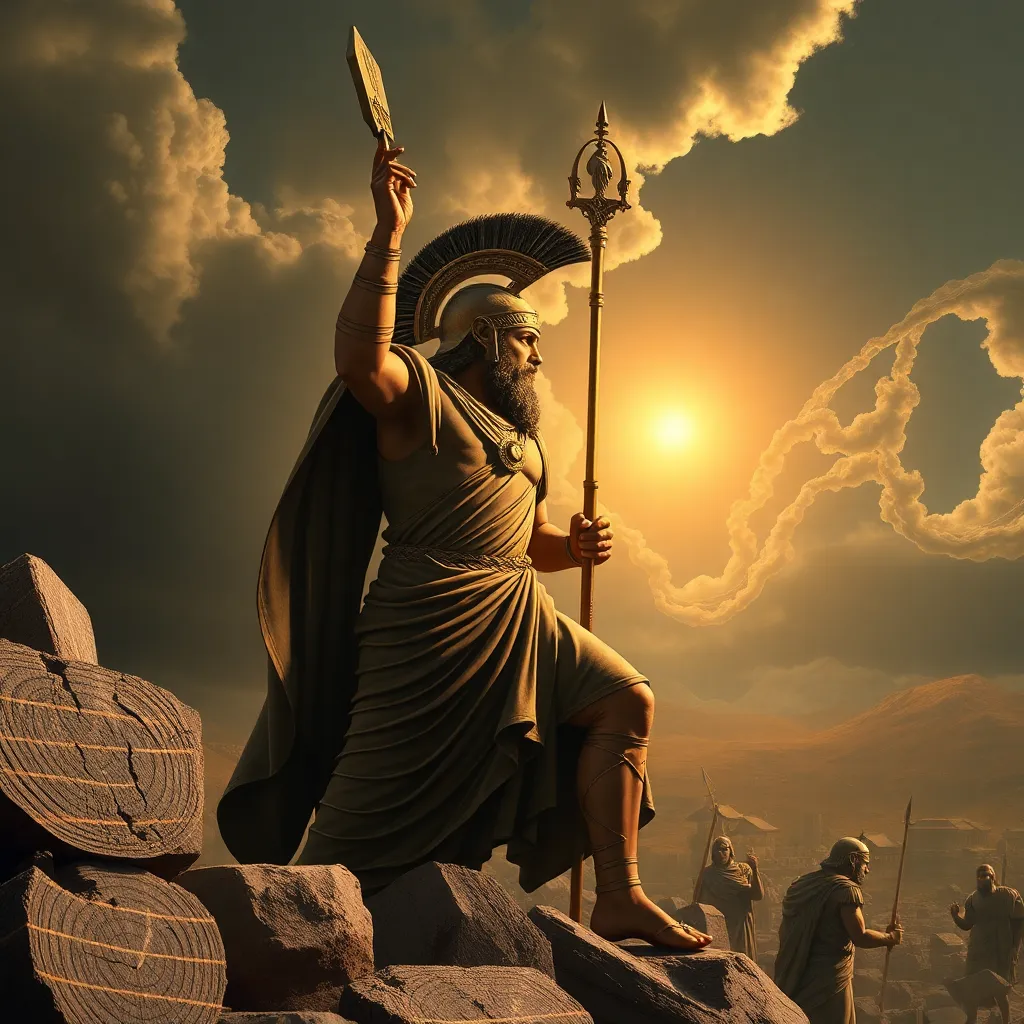Ares and the Nature of Conflict in Human Society
I. Introduction
Ares, the Greek god of war, is one of the most complex figures in Greek mythology. He embodies not only the chaos and brutality of battle but also the deeper, often hidden aspects of human conflict. Examining Ares within the context of human society allows us to understand the nature of conflict and its implications on our lives.
This article aims to explore the relationship between Ares and the nature of conflict in society, delving into his origins, symbolism, psychological aspects, and the consequences of his influence on human behavior and culture.
II. Ares in Greek Mythology
Ares was born to Zeus and Hera, representing a primal force that resonates with humanity’s most basic instincts. Unlike other gods, Ares is often depicted as fierce, aggressive, and bloodthirsty, embodying the violent aspects of war.
In ancient Greek culture, Ares symbolized more than just war; he represented chaos, strife, and the darker sides of human nature. He was often associated with:
- Violence
- Hatred
- Fury
When compared to other deities of war, such as Athena, who represents strategic warfare and wisdom, Ares stands out as a raw force of destruction and uncontrolled aggression.
III. The Psychological Aspect of Conflict
Human instincts often drive us toward conflict, whether for survival, dominance, or resources. Ares serves as a representation of this primal aggression that lies within all of us. His presence in mythology reflects:
- The innate drive for conflict
- The expression of fear and anger
- The competitive nature of human interactions
By understanding these psychological aspects, we can better comprehend how Ares embodies the struggles that define human existence.
IV. Ares and the Justification of War
Throughout history, war has been both a necessity and a tragedy. Ares is often invoked in discussions about the ethics of warfare and just war theory. His figure raises important questions about the morality of conflict:
- What constitutes a just cause for war?
- Can violence ever be justified?
- What are the consequences of invoking Ares in modern conflicts?
The ethical implications of Ares’ symbolism challenge us to examine our motivations for war and the repercussions that follow.
V. Ares in Literature and Art
Ares has been depicted in numerous ancient texts and artworks, from Homer’s epics to classical sculptures. These representations often highlight his dual nature as both a destroyer and a source of inspiration. In contemporary culture, Ares’ influence is evident in:
- Films portraying war and battle
- Literature exploring themes of conflict
- Art that critiques or glorifies warfare
The evolution of Ares’ image reflects changing societal views on war and the complex emotions associated with it.
VI. The Consequences of Conflict
Conflict has profound social, economic, and psychological impacts on society. Ares, as a symbol of war, acts as a catalyst for both destruction and resolution. The consequences of war include:
- Loss of life and trauma
- Economic devastation
- Social fragmentation
However, Ares also represents the potential for growth and resolution, showing how societies can emerge from conflict with newfound strength and understanding.
VII. Lessons from Ares for Modern Society
Understanding the nature of conflict through the lens of Ares provides valuable insights for contemporary society. Some key lessons include:
- Recognizing the primal instincts that drive conflict
- Implementing strategies for conflict resolution inspired by mythological narratives
- Addressing the relevance of Ares in discussions about war and peace
By learning from Ares and the complexities of conflict, we can strive for a more peaceful society.
VIII. Conclusion
Ares, the god of war, holds significant importance in understanding human conflict. His dual nature as both a destroyer and a motivator for growth serves as a powerful reminder of the complexities of war. By reflecting on the lessons of Ares, we can cultivate a deeper understanding of conflict and work towards fostering a more harmonious world.




